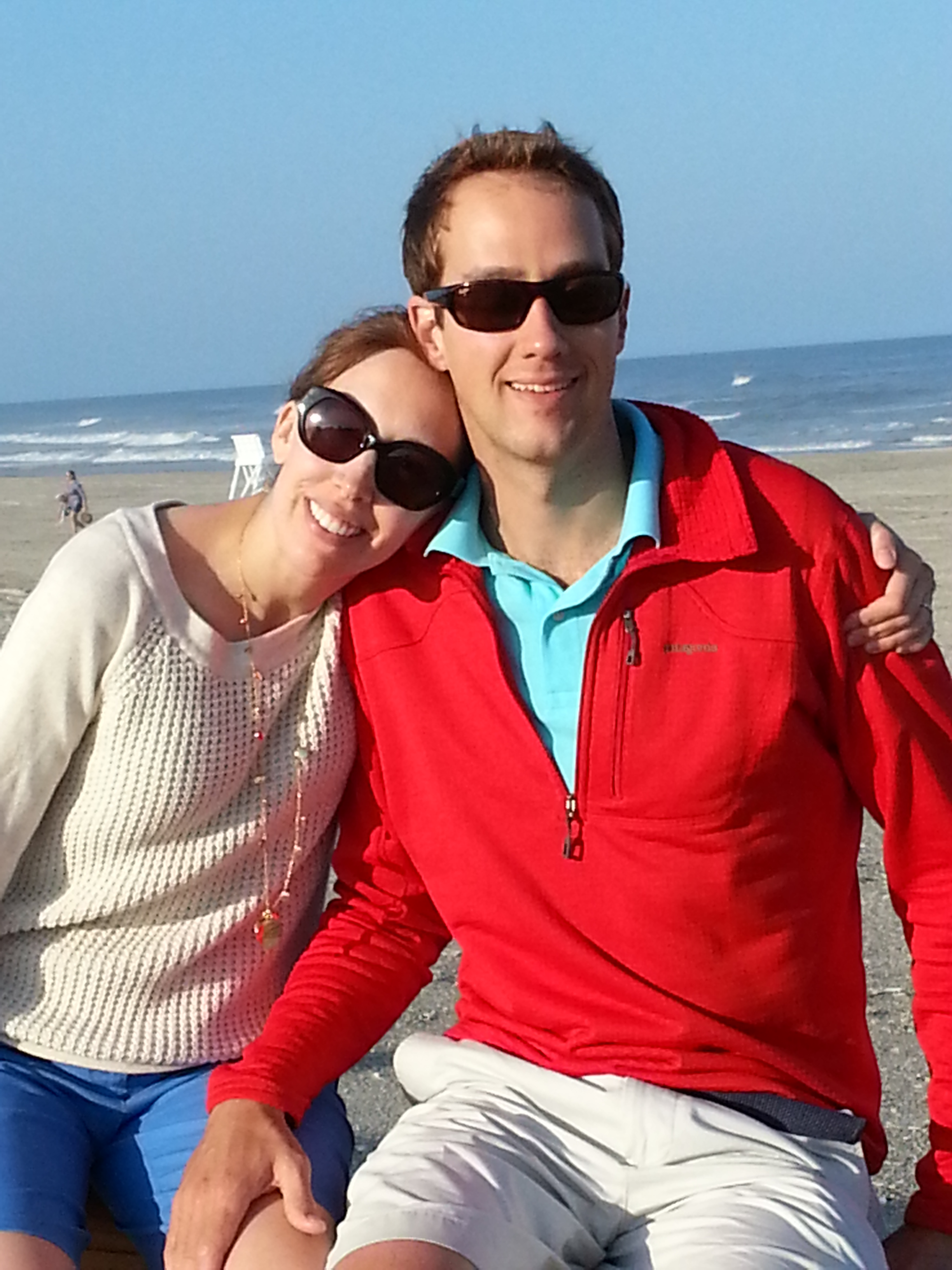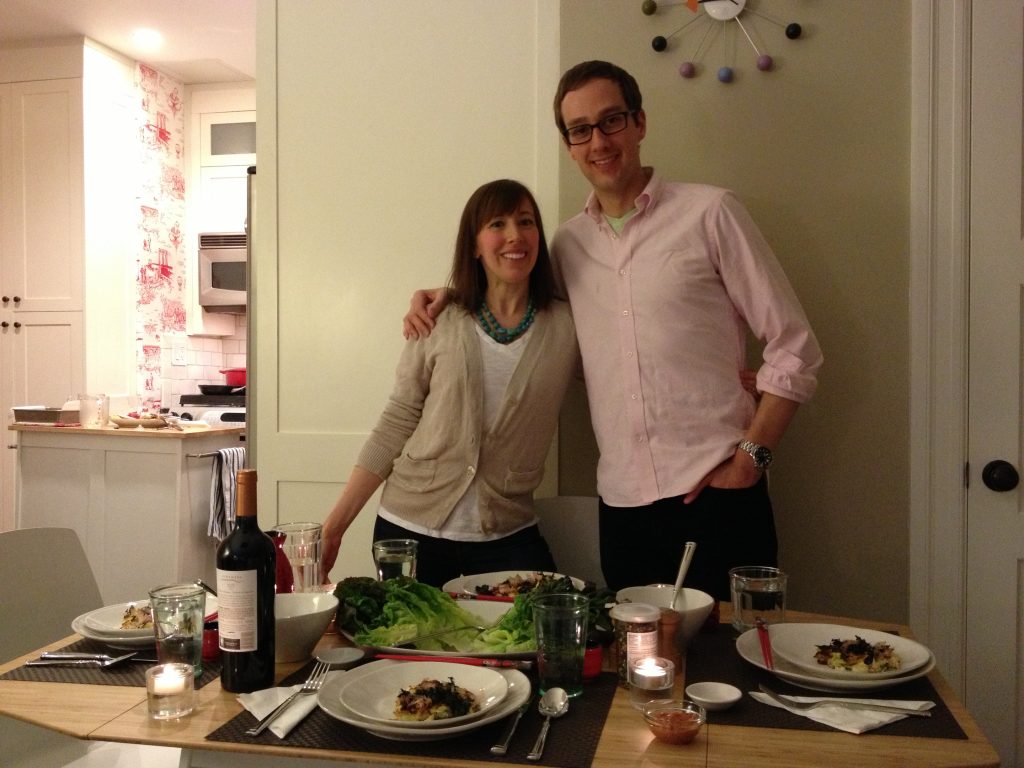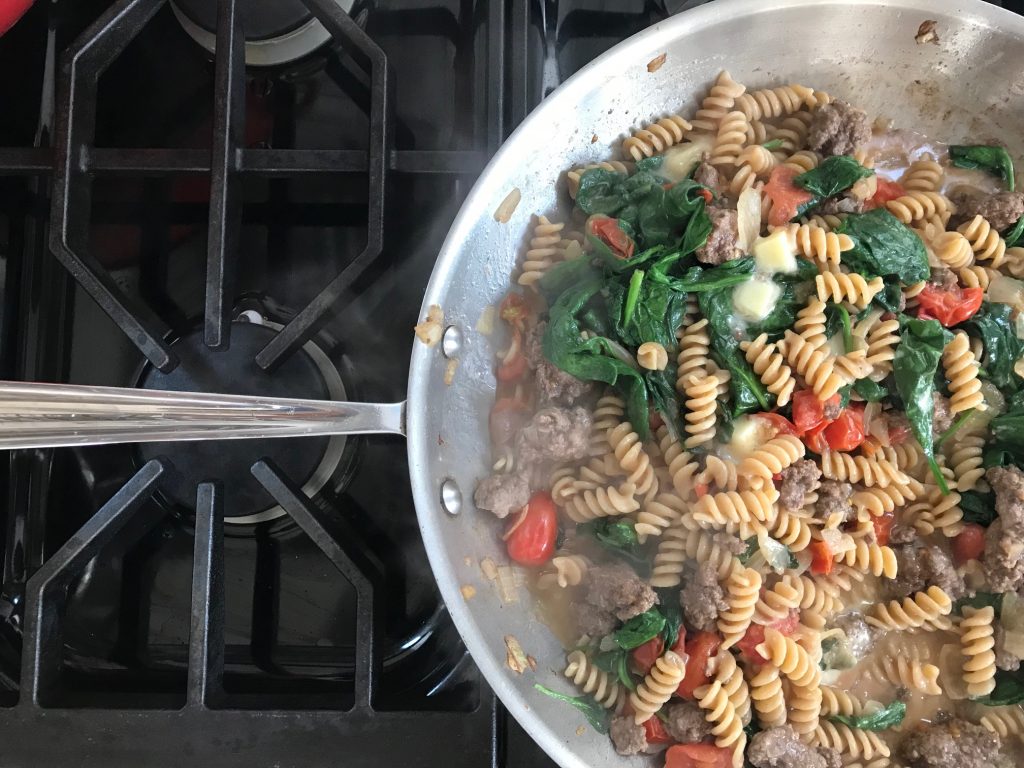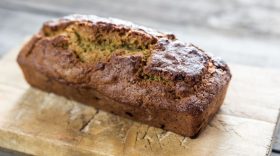Every morning that we could, my husband Erik and I ate breakfast together. No bowl-of-cereal people we, he and I went all out, every day, even though we had to leave for work by 7:45 a.m. or so. Tea for me, espresso for him from one of those angular little Italian stovetop percolators, then scrambled eggs or an omelet, avocado, fresh fruit. Sometimes we had berries. If he was feeling fancy, or at least fanciful, Erik would stuff a blueberry into each raspberry, just for fun. It always made me laugh.

Lisa and Erik (Courtesy of Lisa Kolb)
One day about a year ago while I was eating breakfast, I looked down and saw that a blueberry had wedged itself into a raspberry, just like Erik would have done. I did not want to eat it. I wanted to keep it forever. It could have broken my heart, that little raspberry. But like so many paper-cut-small triggers that stumble into my days, I reminded myself to be grateful for the reminder, not just sad.
READ: Sautéing My Way Through Grief
It has been almost four years since Erik died. I am back to our usual breakfast, except for one thing: the homemade molasses wheat bread we used to devour. It’s a shame, too, because it’s really delicious — especially toasted and spread with good butter that soaks into the bread’s warm, dense crannies. It goes perfectly with eggs.
It is a funny thing, my bread complex. I have baked his favorite chocolate chip cookies lots of times since he died. You would think that the cookies I baked for him to take on the mountain climb that killed him would be written off forever, but no. I just baked them one day, and then it was all right. I have also cooked his favorite pasta dish (recipe below), probably because its shear ease won over all other considerations. (Everyone knows that if you find a winning 20-minute dinner, you must cling to it with the death grip of someone grabbing a PlayStation at a Black Friday stampede.)
But the bread? Not once. And it’s not because it is difficult. There is no yeast or kneading, just Mark Bittman’s dump-and-stir combination of wheat flour, molasses, plain yogurt, baking soda, and perhaps some optional mix-ins like raisins or nuts. And even if it was difficult, it wouldn’t likely stop me. I hold a degree in baking from the Culinary Institute of America.
I think that maybe I have not made it because I had only ever made it for Erik and me. Maybe it’s because breakfast is an intimate meal, and by not making it, I avoid beginning my day with a reminder of who I am no longer beginning it with.
READ: From Funeral Biscuits to Parsley Crowns, Here’s How the World Marks Death With Food
Some people say grief is bitter, but I say it is nutty whole-wheat flavored, slightly sweet with molasses.
I have debated making this simple bread, off and on, for years now. On one hand, I tell myself, there are plenty more breads in the bakery! There is a great artisanal bread bakery nearby, and a nice thick slice of their rustic multigrain loaf, toasted with butter, is legitimately quite good. Even so, a good crusty artisanal bread is still not the bread.

Lisa and Erik (Courtesy of Lisa Kolb)
I came close to making the bread a couple of times. I bought whole wheat flour twice for this express purpose. I gave myself pep talks while standing in front of my open pantry door: Just do it. Just get over the hump, and then it will be done. I told myself it would be like getting through those other Firsts – the holidays and anniversaries – but not even as bad. It’s just a stupid loaf of bread, not your wedding anniversary.
But after all these tender years of healing, I feel that I am done with having Firsts, big or small. I do not think I can take another First. I have come too far from grief to happiness. I feel that I have used up all my strength on those, and have no more Firsts to give.
Is this cowardly? Is this weak? Am I overthinking this whole bread thing? Or am I simply being kind to myself?
A recent wind storm knocked over a large cherry blossom tree near my home, pulling it over right from the roots. The tree lay there for days, next to the scar of soil it was ripped from, before the tree crew could saw it apart and haul it away in pieces. For all those days, the cherry blossoms kept blooming, not yet realizing that since the tree had been killed, they would die as well.
This whole wheat molasses bread may well be done for me — a small, collateral after-loss, like the cherry blossoms. The bread’s ingredients are tucked safely away, to be dispersed into innocuous other things, like cookies and cakes and pizza dough. More and more, I realize that my work may be not to make the bread, but to allow myself to let it go, without guilt, without a sense of failure, but — like the tree in the storm — simply as what happens.

Erik’s favorite pasta. The recipe is below. (Courtesy of Lisa Kolb)
Bring a large pot of well-salted water to a boil, and add pasta, stirring occasionally until very al dente or slightly undercooked.
Lisa Kolb is a writer who divides her time between Washington, D.C. and Brooklyn, NY. Her writing has appeared in The Washington Post, Food52, Remedy Quarterly, and more. She is the editor of Unpeeled, a food blog focusing on women in food.








